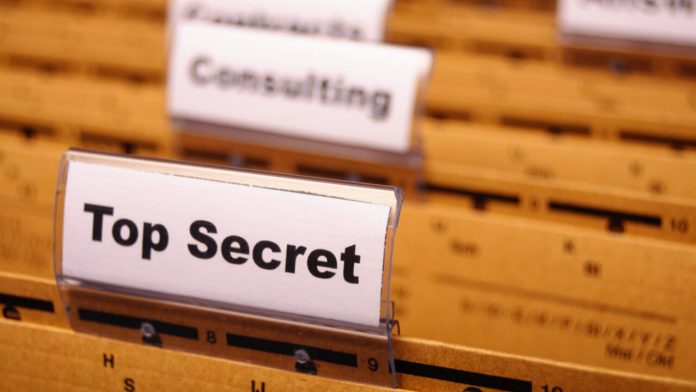This article is written by Preeti Pallavi Jena, from the school of law, KIIT University, Odisha. This article talks about the trade secrets’ benefits, their requirements, application, and protection in India.
Table of Contents
Introduction
Trade Secrets have a huge importance in intellectual property. It is highly recognized and well protected. Specific provisions are made to increase the protection of trade secrets which are made under Article 39 of TRIPS (Trade-Related Aspects of Intellectual Property) and NAFTA (North American Free Trade Agreement). Article 10 bis of the Paris Convention also gives support to the international means of trade secret protection. A trade secret is any information used for business to obtain competitive advantages. These are not legally protected. In the US, unauthorized use of trade secrets by another party is restricted by state law. These laws are based on the Uniform Trade Secrets Act. The trade secret is also known as undisclosed information. It basically protects and keeps the business information safe and secure without disclosing it to the public and it also creates a competitive environment for our economy.
Trade secret in intellectual property
Intellectual property rights consist of trade secrets that can be licensed or sold. For being a trade secret, it needs to be kept secret, very few people should know it. The protection of such trade secrets is on the owner. He has the responsibility for the protection. These trade secrets are kept confidential, hidden, secreted. For the protection of the competitive advantage of the business, we always relied or were dependent upon secrecy. Trade secret means something which is happening in the company and should not be known outside the company. Since it is a secret, hence the information needs to be commercially valued, it should contain some information. Here commercially valued means which give an advantage over competitors in a business. It is never known to the public at large and should be kept isolated from few people only. This trade secret needs to be protected regularly. As we know, the Economics Espionage Act of 1996 protects the trade secrets of the US.
This trade secret can be any information, technique which is unique, process, or any special formula which is not disclosed to the public and which must create an economic benefit. Millions of dollars are used to keep certain sensitive information secretive and preserve it.
To know more about IPR please visit
Examples of trade secret
- The secret formula for coca-cola (the most famous trade secret all over the world, this is not revealed since it is not patented).
- Google inc.’s search algorithm (this exists in code and is regulated and improved regularly).
- Recipes for food products ( special ingredients).
- Processes for the conversion of raw materials to used materials.
- Technological processes.
- Formula for WD-40.
- Chemical formulas for cleaning products.
TRIPs and trade secrets
The unauthorized use of information leads to an unfair practice at the GATT negotiations. Article 39 of the TRIPs, says that trade secrets are also known as undisclosed information. This can be protected also under Article 10 bis of the Paris Convention. Article 39(2) of TRIPS states that everyone who is a member can protect undisclosed information for commercial purposes and Article 39 (3) says that the information which has been given to the government for regulation has to be protected from theft and leakage. TRIPs do not define the trade secrets anywhere specifically. But it is known that the information which has been kept secret and the public cannot access it is called a trade secret. Those who do not qualify as patents can be said as trade secrets.
Requirements to get trade secret protection
- It should be confidential in nature.
- It must be secretive and not accessible easily by everyone.
- It must have the actual commercial value in the market.
- Reasonable steps must be taken to keep it secret.
Trade secret protection applicability
To know more about Trademark please visit
Trade secrets are not registered under government policies. It is kept secure as per contracts, agreements for non-disclosing information. Protection is made to restrict the members from sharing the information regarding trade to the competitors of the company. The term period till which the trade protection last is mentioned in the contract terms. The expiration of such period should be mentioned in the documents which need to be written because it is not registered. If this trade secret is made available in public then it will lose the exclusive rights and protection regarding the secrets because it no longer remains a secret.
Ways of protecting trade secrets
-
Recognize your trade secrets
You have to know what is your trade secret. On disclosure of what details your company can lose its competitiveness in the society. This detail is nothing else than the trade secret.
-
Access to such secrets should be restricted
If there’s any evidence that is written on paper or is available in the systems like computers and laptops, limiting the access to such evidence can keep it safe. It should always be secured, for instance with passwords to open which can be available to limited people of the company.
-
Trade secrets to be protected through the contractual obligations
The people knowing about the trade secret have to sign the contracts for not disclosing the information. They cannot even disclose such information even after leaving the company for any specific reason.
-
Maintain the secrecy
Regular updates regarding the secret need to be given to the workers, staff, employers of the companies.
Difference between patent and trade secret
For the protection in case of a patent, the information needs to be disclosed wherein trade secret the information should not be disclosed in the public at any cost. In patents, where the protection is necessary, the patent is implemented and granted in each and every country whereas in trade secrets they don’t need to register any information for protecting it. The protection time period for patents is 20 years maximum from the date of filing and this can also be renewed after 20 years. But in trade secrets there is no specific time period for protection, it’s just that the secrecy must be preserved. In the patent, all the information needs to be new, novel, non-obvious in nature but in trade secret, it should have some commercial value and should be hidden.
Trade secrets receive less attention than other areas of intellectual property
This is because trade secrets are not having government registration. This is applied and beneficial for business matters. There are very few rules that are enforced regarding this concept. Since trade secrets are secrets, they are not disclosed to the public. The public cannot give any opinion regarding it. But still, this secrecy has been part of the trade and development for hundreds of years. Trade secrets protect the trust of the relationship. But it is also seen in the news that attacks are made through this on companies all over the world with the help of fake email messages in the corporate world. By cyber spying or cyber espionage means of obtaining secret information or sensitive data without the permission of the competitors or any individual. These types of cyberattacks are done to take over a competitive company.
Methods of protecting trade secret
TRIPs protect trade secrets in the name of undisclosed information. The US and many more countries have protected trade secrets by their legal instruments and technologies. But the nature in which they protect can be different for different countries because there may be different types of crimes for countries, like in some it is a breach of trust, in some, there is leakage of information, fraud, unfair competition, etc. But these trade secrets cannot be protected in a legal manner as they are secrets. If a person whom we can think of as a competitor decoded the secret by reverse engineering, lawfully without having any access to the secret, it wouldn’t be treated as a violation of trade. This is because he himself discovered the secret, without taking anyone’s help.
The USA made a law called UTSA (Uniform Trading Secret Act) for restricting the unauthorized commercial use of trade secrets by another person. They also made another law regarding this known as EEA (Economic Espionage Act, 1996). This Act punishes the person who provides unauthorized secrets.
To make sure that the trade secrets are secured, it should be known to limited people and the employees, the persons who are dealing with the computer security must sign the non-disclosure agreements. If these steps are not taken then no secret will further remain as a secret.
Trade secrets protection in India
India, under Article 39 of TRIPs says that the protection of undisclosed information is essential. But if there is any violation or breach of contract then no legislation can prevent it. Under Article 39(3) of TRIPs, the documents which are submitted to the government are not bound by the secrecy clauses. Hence, the chance of having illegal access to such trade secrets is quite high. Trade secrets also happen through the breach of confidentiality doctrine.
Sui generis system
For the protection of undisclosed information, India has undergone a system known as sui generis which is given under Article 10bis of the Paris Convention and also under Article 39 of TRIPs. Even though it is difficult, we still have to enforce it. A sui generis means something which is of its own nature. It creates a new law that can provide protection to the intellectual property dealing with any biodiversity resources and also the trade secrets, which will create a beneficiary for the economy of India. This makes more growth in the sector of foreign investments in India and it also helps the Indian companies for growing more. This system is necessary in India for providing safety and security to the trade secrets for the foreign investors in India and also for the local investors. This system can also provide remedies for the damages caused in disclosure of information or for making illegal and illogical contracts etc.
Benefits of trade secrets protection
There are many situations where the trade secret will be beneficial, those are:
- When the thing that is kept secret but not patented.
- Before a patent has been filed and till the time the application of the patent is published at the patent office when the patent process continues to take place, the trade secret protection can be beneficial.
- If a secret is not famous enough to qualify to get the patent.
- If a secret is not related to the product and is more inclined and related to the process for getting the product then the products can be reverse-engineered.
Misappropriation laws of trade secrets
When there is an improper disclosure of the secret, misappropriation occurs and a lawsuit can be filed against it immediately. This improper disclosure happens when trade secrets are obtained but by using illegal means. Example: like theft, misappropriation, industrial espionage, motivating someone to breach, etc.
If you disclose the information to such a person who has no relation to it and cannot use it by any means still you will be held to commit the improper disclosure because trade secret means to keep it secret. These are the basic criteria that need to be fulfilled since this is not satisfied hence a secret no more remains a secret and becomes useless now. By leaking even by one single person will no more keep it as a trade secret.
But if the trade secrets are obtained independently, and are obtained by own from the help of any publication then these will not be considered improper under the trade secret law.
Case law
John Richard Brady v. Chemical Process Equipments Pvt Ltd 1987
- This case was held in the Delhi High Court. Here a dispute arose and the plaintiff was requesting to avail for permanent injunction for preventing the defendant from infringing the copyright of the plaintiff. The plaintiff had a new idea for developing green grass as a food in the whole year irrespective of the climatic condition of the area. This was a good innovative idea. He made an original Fodder Production Unit (FPU) in 1972 and approached for starting the program of manufacturing the FPU in India and for this he asked for the quotations supply of thermal panels from the defendant as these panels were created and manufactured by the defendant only.
- All the details, technical materials, drawings, and specifications of the FPU were made with a confidential agreement which says that the defendant will not manufacture these panels for anyone else during the pendency period mentioned in the agreement nor he would disclose any confidential information details and specification to another person. After a few more days, the plaintiff found that the defendant had made a machine that had been made with the same designs, specifications that the plaintiff provided him for developing the FPU. By seeing this the plaintiff alleged that there was a false representation of his FPU and the defendant had caused a breach of confidence because he misuses the information, drawings, and specifications that were provided to him for not disclosing the confidential agreement. He also alleged that the defendant wrongfully converted his information regarding the FPU and the machine which the defendant made, was a false version of the plaintiff’s FPU. Unfair advantage of the plaintiffs’ work has been taken. He said that this caused huge damage to his business and also to his well-developed reputation.
- But the defendant did not agree to this and contended that they did not infringe the copyright and also did not breach the agreement. He said that it was not only him, but there were also many other firms that had made similar machines on a global level. He also said that the plaintiff had not provided him with any technical material, know-how information, and drawings. He said they only provided him with the information and specifications with regard to thermal panels for making quotations. He also alleged that he did not create any violation because the machine which they made was quite different on several grounds from the plaintiffs.
- Taking into consideration the arguments which are made by both parties, the court held that, machines of the parties are quite similar in nature and the defendant had knowledge and access to the drawings and designs made by the plaintiff. The court gave a decision in favour of the plaintiff by saying they can have a case of infringement with respect to copyright and it was wrong on the part of the defendant for disclosing the confidential information about the FPU and hence, they are restricted from producing and selling any machines which they have made from the drawings of the plaintiff’s information of FPU.
Remedies
The owner of the trade secret can get compensation for the damages that are caused by the person who violated the trade secret. Some countries also give injunctions for disclosing secrets and in some countries, criminal penalties are also given for the violation of trade secrets. Countries like Brazil, consider these kinds of violations as crimes by unfair methods. India also provides various remedies with respect to a violation of trade secrets and those are the injunction, compensation for the losses, or damages caused by any person for disclosing confidential information.
Conclusion
Trade secrets are necessary for the economic system of India. Since there is a huge demand from people, there is always a tough competition among the competitors to provide the best quality to the market. This fulfils the interest of the consumers and will take care of their needs more. For fair competition in our country trade secrets need to be protected. If these will not be protected, then everyone will be able to design and manufacture the process in the same way and there will be no uniqueness in our country and the competition level among the competitors will keep on decreasing greatly, day by day. One more thing is that there will be no appreciation for the hard work made for the trade secret. It will render the market useless and the development of our economy will become. Hence, to make our economy the best among countries and to build the competition, protection of trade secrets is required. These trade secrets are considered as an alternative to patent law.
References
- https://www.lexology.com/library/detail.aspx?g=c83e8a6c-a02e-44ba-8723-94087d2e5e20
- https://www.dbllaw.com/intellectual-property-and-the-importance-of-trade-secrets/
- https://www.wipo.int/tradesecrets/en/tradesecrets_faqs.html
- https://www.investopedia.com/terms/t/trade-secret.asp
- https://www.loc.gov/law/help/tradesecrets/index.php
- https://www.legalmatch.com/law-library/article/remedies-for-trade-secret-misappropriation.html
LawSikho has created a telegram group for exchanging legal knowledge, referrals and various opportunities. You can click on this link and join:
 Serato DJ Crack 2025Serato DJ PRO Crack
Serato DJ Crack 2025Serato DJ PRO Crack










 Allow notifications
Allow notifications


